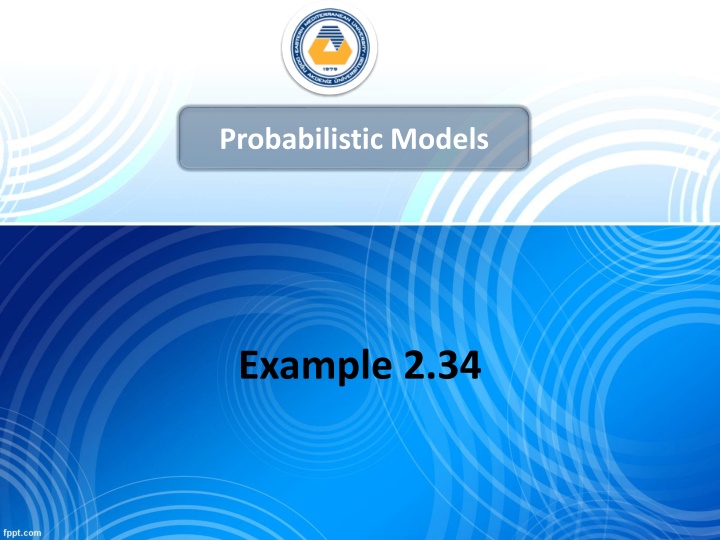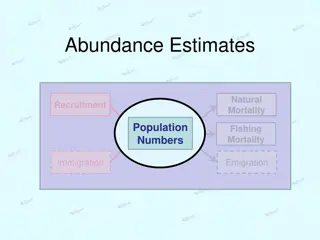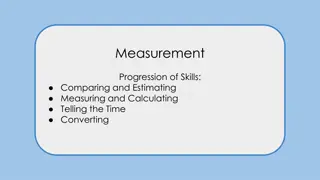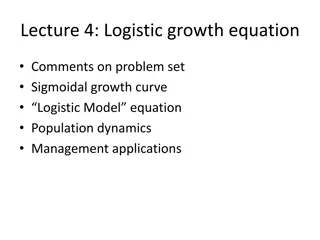Estimating Fraction of Population in Favor of a Proposition
Consider sampling from a finite population to estimate the fraction favoring a proposition using hypergeometric distribution. Explore the mean, variance, and computations involved in determining the estimator's properties. Gain insights into the estimation process and its nuances.
Download Presentation

Please find below an Image/Link to download the presentation.
The content on the website is provided AS IS for your information and personal use only. It may not be sold, licensed, or shared on other websites without obtaining consent from the author.If you encounter any issues during the download, it is possible that the publisher has removed the file from their server.
You are allowed to download the files provided on this website for personal or commercial use, subject to the condition that they are used lawfully. All files are the property of their respective owners.
The content on the website is provided AS IS for your information and personal use only. It may not be sold, licensed, or shared on other websites without obtaining consent from the author.
E N D
Presentation Transcript
Probabilistic Models Example 2.34
Sampling from a Finite Population { The Hypergeometric } Consider a population of N individuals, some of whom are in favor of a certain proposition. In particular suppose that Np of them are in favor and N Np are opposed. p is assumed to be unknown. We are interested in estimating p. P is the fraction of the population that is in favor, by randomly choosing and then determining the positions of n members of the population.
Hence, if we let ? Usual estimator of P is ?=0 its mean and variance. The mean : ? ??/?. Let us now compute ? ? ?? = ? ?? = ?[1?? + 0? 1 ? ] = ?? ?=1 ?=0
Variance: ? ? ??? ?? = var ?? + 2 ??? ??,?? ?=1 ?=1 ?<? 2 - ? ?? 2 ??? ?? = ? ?? = ? 12 ? + 0 1 ? 1 ? + 0(1 ?)2 = ? ?2 = ?(1 ?)
??? ??,?? = ? ???? ? ??? ?? = ? ??= 1,??= 1 ?2 = ? ??= 1 ??= 1 ? ??= 1 ?2 =(?? 1) ? 1 =?(?? 1) ?? ?2 ? ?2 ? 1
? ??1 ? 1 ? ?? 1 ? 1 ?? = ?? 1 ? + 2? ? ?2 ??? ?=1 = ?? 1 ? 2 ?(? 1)(? 2)! 2 ?2 2! ? 2 ! ? ?? 1 ? 1 ?2 = ?? 1 ? ?(? 1) ? ?? 1 (? 1)?2 ? 1 = ?? 1 ? ?(? 1) ??2 ? ??2+?2 ? 1 =?? 1 ? ?(? 1) =?? 1 ? ? ? 1 ?(1 ?) ? 1
?? ?=P ? ? ?=1 ?? ?=1 =? 1 ? ? 1 ?(1 ?) ?(? 1) ? ? ??? ?=1 ?2??? ?=1 ?? ?






















